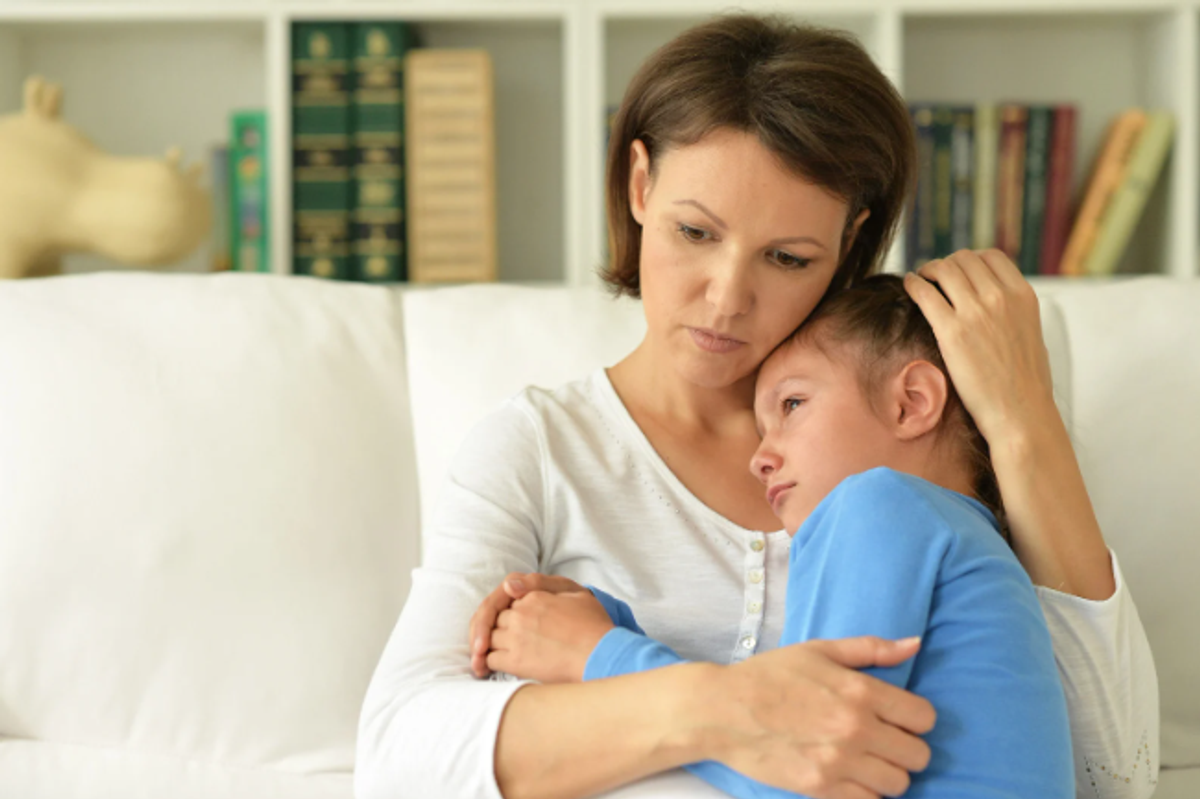‘Nobody loves me’: Expert shares a counterintuitive way to respond to your child’s self-pity
The knee-jerk reaction to make them feel better isn't always right.

A mother consoling her sad child.
Every child will inevitably have some moments of self-pity, whether wallowing in despair after missing out on being picked at basketball, not being invited to a party, or blowing it on a test. As parents, our knee-jerk reaction is often to satisfy the child after they cry, “I have no friends” or “I’m not smart enough.”
However, Mary Grass, a behavior analyst and a parent coach who goes by TheFamilyBehaviorist on Instagram, says that parents should reject the impulse to immediately put their arms around the child and say, “There, there, poor baby.”
Grass illustrated her point by sharing a recent situation with her 5-year-old daughter, the middle child of 3. When her daughter said, “Nobody loves me,” she reacted as most parents do by consoling the child and reassuring her that she is loved. But she soon realized that all of her reassurance was teaching the child that self-pity was a way to get attention.
“I have three daughters, so it is very important to me that I do not teach them to be self-deprecating in order to get attention. And so what I realized I was doing was I was teaching my daughter to speak negatively about herself to elicit my attention,” Grass explained. "It took me a few tries, but then I started responding differently."
How do you respond to a child who says, ‘Nobody loves me’?
Instead of immediately reassuring her daughter that she is loved, Grass provides her with space to understand her feelings. “I would say, ‘It's clear you're having some big feelings. When you're ready to talk, you can tell me I'm ready,’” she said. After a few weeks of responding to her daughter’s self-deprecating breakdowns, she noticed a change.
The mother had a dance party with her other 2 kids while her middle daughter was in the shower. Later, the daughter explained that she felt left out. “This progressed so nicely that it got to the point this summer where my middle could say to me, ‘I feel like you're not paying attention to me,’” Grass said. “Now, listen, we also have to work on, there's three of you and one of me, all of that good stuff, but I will take her naming her feeling and coming up to me and telling me directly what she needs over [pouting]” Grass said.
How do you respond to a child feeling sorry for themselves?
Grass ended the video by summing up her approach to dealing with self-pity.
“I don't want to reinforce that pouting. I want her to name her feelings. In this case, I want to give her the ability to come to me and let me know how she's feeling, and I can adjust accordingly,” Grass said. "Instead of swooping in, try to say, 'Hey, you're having some big feelings; let me know when you're ready to talk. I want to talk about this.’"
The commenters loved how Grass explained that parents should do more than simply reassure their children by giving them ways to address their complicated feelings. "I love this; it reinforces that our job is not to simply make them feel better but to teach them to decipher and effectively express their feelings," Jehan wrote in the comments.
Grass’s video is an excellent reminder to all parents that our automatic reactions may sometimes be incorrect. When our children repeatedly exhibit the same troubling behaviors, instead of doubling down on our responses, we should ask ourselves, “Am I reinforcing this behavior or extinguishing it?”


